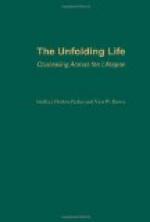A few suggestions may be added relative to the work in the School itself.
PLACE
The Juniors should have a separate department and place, for their work is distinct in character and methods from the Primary and Intermediate departments. Maps and charts should be added to the equipment, individual and personally owned Bibles, and where they can be had, tables for each class.
ORGANIZATION
For two important reasons the department should be divided into classes and the teaching done by the teachers, presupposing they have risen to their privilege and are trained. First, the week-day shepherding becomes an increasingly serious matter as the child is broadening in his relationships, and no superintendent can give it alone. Second, the recitation must give large opportunity for individual work on the part of the pupil during the lesson, and this is impossible in a department taught as a whole.
PROGRAM
The program should give prominence to supplemental work taught largely through drills, including—during the Golden Memory Period—the Books of the Bible, passages, chapters, facts concerning the Bible and training in its use, geography of the Holy Land, the catechism where used and the hymns of the church. Public recognition in badges, certificates and roll of honor will aid in securing the desired work along this and other lines.
Systematic and careful training in habits of Christian service ranks with the lesson in importance. Responsibilities in various committees through the week may be used to strengthen habits and utilize energy. Missionary heroes should be made as familiar to the children as their own personal friends, and there should be regular contributions to definite objects, not abstractions like “Missions” or “Benevolences.”
Music of a martial type is greatly enjoyed by the children, also that suggesting action, but never the meditative, introspective sort. Great care should be taken to guard the voices from overstrain in loud singing, as irreparable damage may be done for all time to come.
THE LESSON
The Junior lesson should be prepared to meet the children’s interest in facts and love of a hero. They are not ready yet for truth in the abstract—it must be seen in a person. Instead of the story, as in the Primary class, there must be a mingling of vivid word pictures by the teacher and question and answer. The children should not be told to “study the lesson,” for they do not know how, but rather have assigned to them one definite thing to prepare for the recitation. Make use of their love of reading in this connection. Use energy and hold attention by means of pad and pencil, written answers in the books they are making on the current lessons, map drawing, looking up references and a stereoscope if possible. Time before the session and in the social gatherings of the class can be most fascinatingly and profitably used in making pulp and sand maps and models of Oriental objects.




